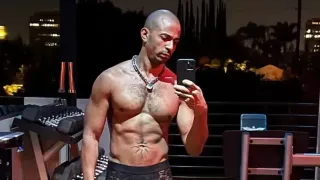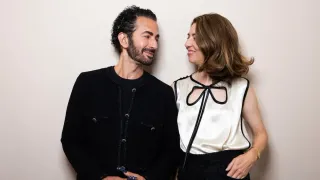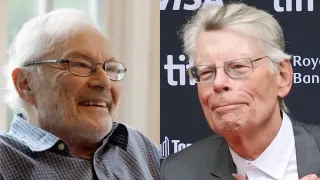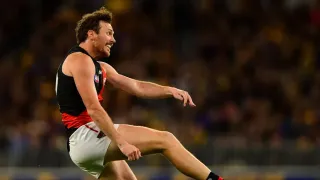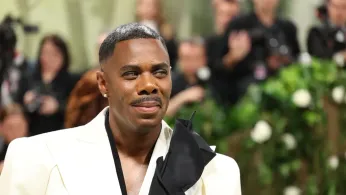
7 hours ago
Colman Domingo Channels RuPaul In Response to Criticism of Cameo In Sabrina Carpenter Music Video
READ TIME: 3 MIN.
When Sabrina Carpenter unveiled the music video for her single “Tears” on August 29, 2025, fans were treated to a flamboyant celebration of queer culture and camp references. The video, inspired by the 50th anniversary of The Rocky Horror Picture Show, features Oscar-nominated actor Colman Domingo in a leading drag role reminiscent of the film’s iconic Dr. Frank-N-Furter .
The visual narrative opens with Carpenter wandering into an unfamiliar house, met by Domingo’s character—a loving nod to the gender-bending performances that made Rocky Horror a cult classic. As the video unfolds, viewers are immersed in synchronized dance breaks, vibrant costumes, and a house full of LGBTQ+ “outcasts”—all set to Carpenter’s disco-infused track .
While the majority of fans applauded the collaboration between Carpenter and Domingo, a vocal minority on social media criticized Domingo’s drag performance, questioning his suitability and the broader significance of his role. Some detractors claimed that Domingo was “too manly for a gay man” and implied that Hollywood’s casting choices were motivated by stereotypes rather than authenticity .
Domingo, known for his groundbreaking roles in Euphoria and Sing Sing, did not shy away from the debate. In a gesture both playful and poignant, he responded directly to critics on social media by invoking a quote made famous by RuPaul: “Aha. I stand corrected. Big ole hug!” .
He further expressed gratitude to Sabrina Carpenter for inviting him to “truly play” in such a bold, celebratory project, writing on X (formerly Twitter): “Didn’t see that coming did ya? Thank you Sabs for inviting me to truly play” .
The “Tears” video’s release comes at a time when discussions about LGBTQ+ representation in mainstream media remain both urgent and deeply personal for many viewers. For decades, The Rocky Horror Picture Show has served as a touchstone for queer liberation and self-expression, and Domingo’s performance is widely seen as a continuation of that legacy .
By casting Domingo in a gender-bending, flamboyant role, the video not only pays homage to LGBTQ+ history but also expands the boundaries of who can authentically participate in queer storytelling. Carpenter herself is known for weaving pop culture and queer references into her work, and her collaboration with Domingo has been lauded by many fans as a “rapturous” celebration of diversity .
On social media, the hashtag #Tears trended as viewers praised the video’s unapologetic embrace of camp and queer aesthetics, with some LGBTQ+ commentators describing it as a “love letter to outcasts and rebels” .
Domingo’s use of RuPaul’s signature positivity in the face of negativity is emblematic of a broader tradition within LGBTQ+ communities: meeting ignorance with wisdom, and hostility with grace. RuPaul, who has long championed the value of loving oneself and others in the face of adversity, remains an icon for many queer people navigating public scrutiny .
With Carpenter’s album "Man’s Best Friend" already making waves, and the “Tears” video generating widespread engagement across platforms like YouTube, TikTok, and X, the collaboration between Carpenter and Domingo is poised to remain a talking point in both music and LGBTQ+ media landscapes .
As the conversation evolves, Domingo’s words—echoing RuPaul’s call to embrace kindness and resilience—offer a timely reminder: “If you can’t love yourself, how in the hell are you gonna love somebody else?” .
